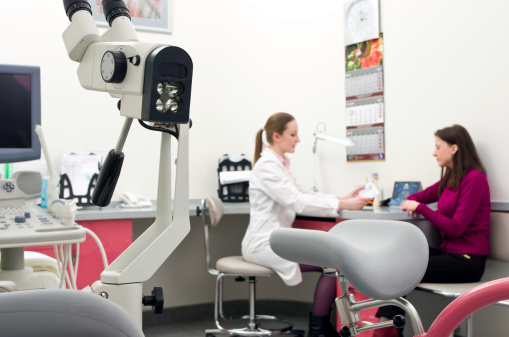

As an obstetrician and gynecologist (OBGYN) you will lead a healthcare team focusing on women’s health. Most positions will include inpatient, outpatient, and labor and delivery services. There are increased opportunities for temporary positions because increased malpractice costs and erratic work schedules have led to fewer medical students pursuing OBGYN as a career in recent years.
Short term positions of several weeks or months will let you “interview” a practice that might be a good permanent fit for you. Alternatively, extended work assignments may allow you the freedom to fulfill a passion like medical missions in remote parts of the world. Finally, working as a traveling OBGYN provides “knowledge” and “experience” of how different hospitals mange similar problems. That experience makes you more valuable in the future if you consider administrative medicine as a potential career path.
OBGYN physicians are needed all over United States, especially in rural areas. Depending on your interests and skills, you will have opportunities to treat routine pregnancies and gynecological conditions in the office setting or focusing your practice as an OBGYN hospitalist.
Clinical knowledge, technical competence, and problem solving are minimum necessary skills to function as an OBGYN. However, they are not the only, or maybe even the most important, skills you will need to be successful. Because obstetrics and gynecology can be stressful, knowing how you respond to and manage stress is essential. Additionally, you need to have the intellectual curiosity to acquire new knowledge and skills as your field develops. Being a life long learner and continually applying new advances in the medical literature to your practice is essential to succeed and provide excellent patient care.
OBGYNs also need excellent communication skills. The ability to explain complex topics (e.g. a complication of pregnancy or why a C-sections is needed) in a simple, but useful way so that patients can be truly informed is essential. Patients value OBGYN physicians who will take time to listen and not rush in and out of an office visit.
Sharing in a family’s joy when telling the sex of a baby and consoling a family when you discover a congenital defect will be some of the highs and lows of your practice. In addition to your patients, you will need to efficiently communicate (both written and verbally) with peers in other specialties.
OBGYNs need to be team players. While you will be a leading your patient’s team, every team member is essential for patients to receive the best care. If you do not play well in the sandbox with others your patients will suffer.
In order to become an OBGYN you must first complete a 4 year medical degree and a 4 year residency accredited by the American Council for Graduate Medical Education. OBGYN training includes training in the areas of obstetrics, gynecology, gynecologic oncology, reproductive endocrinology, and ultrasonography. Training includes both medical and surgical treatment of conditions
Every state in the U.S. requires licensure to practice as an OBGYN. In general, you must graduate from an accredited medical school, complete residency training, and pass a general licensing exam that all physicians must pass. Additionally, many hospitals require their medical staff to be board certified in their specialty. This requires you to pass OBGYN specific written and oral exams.
The average salary for a full time OBGYN is $216,760. Some positions offer hourly compensation at an average rate of $104 per hour. Salaries will vary by location and may be higher or lower depending on cost of living and local needs. Generally speaking, salaries will be higher in more rural areas and areas that are more difficult to recruit physicians to.
There are different bonuses and incentives that are available depending on what you want to do. You may receive bonuses for taking labor and delivery call as well as the potential for administrative supplements.
OBGYN physicians definitely work long hours. Because emergencies and deliveries happen at anytime, OBGYNs are commonly asked to come to the hospital at irregular times. Further, OBGYNs also spend many hours in the operating room and see patients in the office, emergency department, or in the hospital.


OBGYNs are needed throughout the U.S. and travel positions will offer you location independence.
Hospitals have their own politics. As a traveling OBGYN, your skills are in great demand and you will be accommodated, free of the administrative angst a regular staff member might experience.
Traveling OBGYNs generally report higher salaries compared to their fulltime, location dependent colleagues.
Finally, traveling for temporary work provides additional opportunities to learn. You will see how different OBGYNs execute similar tasks and experience different practice settings. Such experiences may provide you with the experiences that could lead to administrative and other leadership positions in the future.
By Pat F. Bass III, M.D., M.S., M.P.H.
Pat Bass
Pat is a board certified General Internist and Pediatrician He has served as a reviewer for leading national publications including Pediatrics, the Journal of General Internal Medicine and the Annals of Internal Medicine. Pat is also the asthma guide to About.com, a New York Times Company. Learn more about Pat on Google+